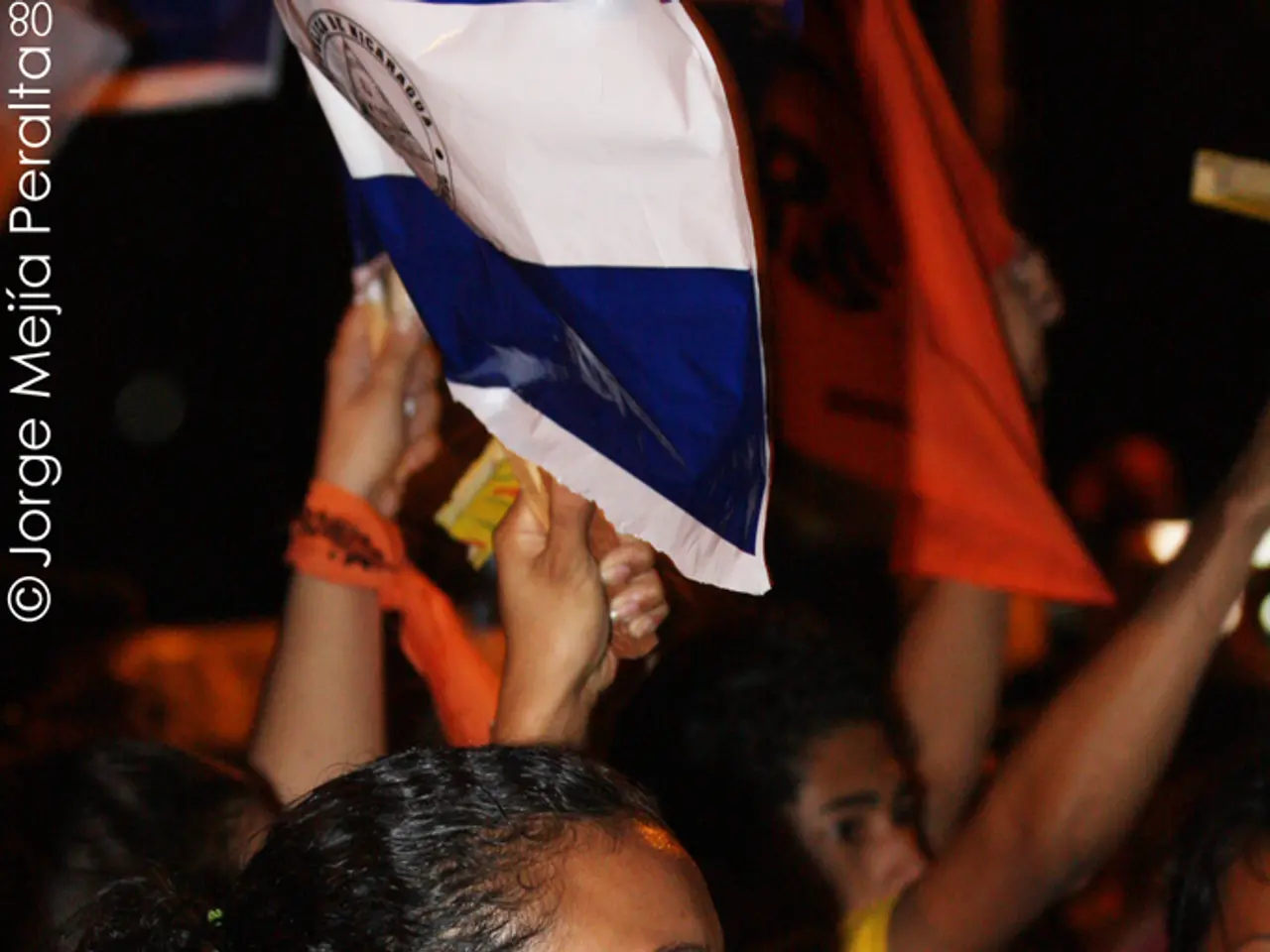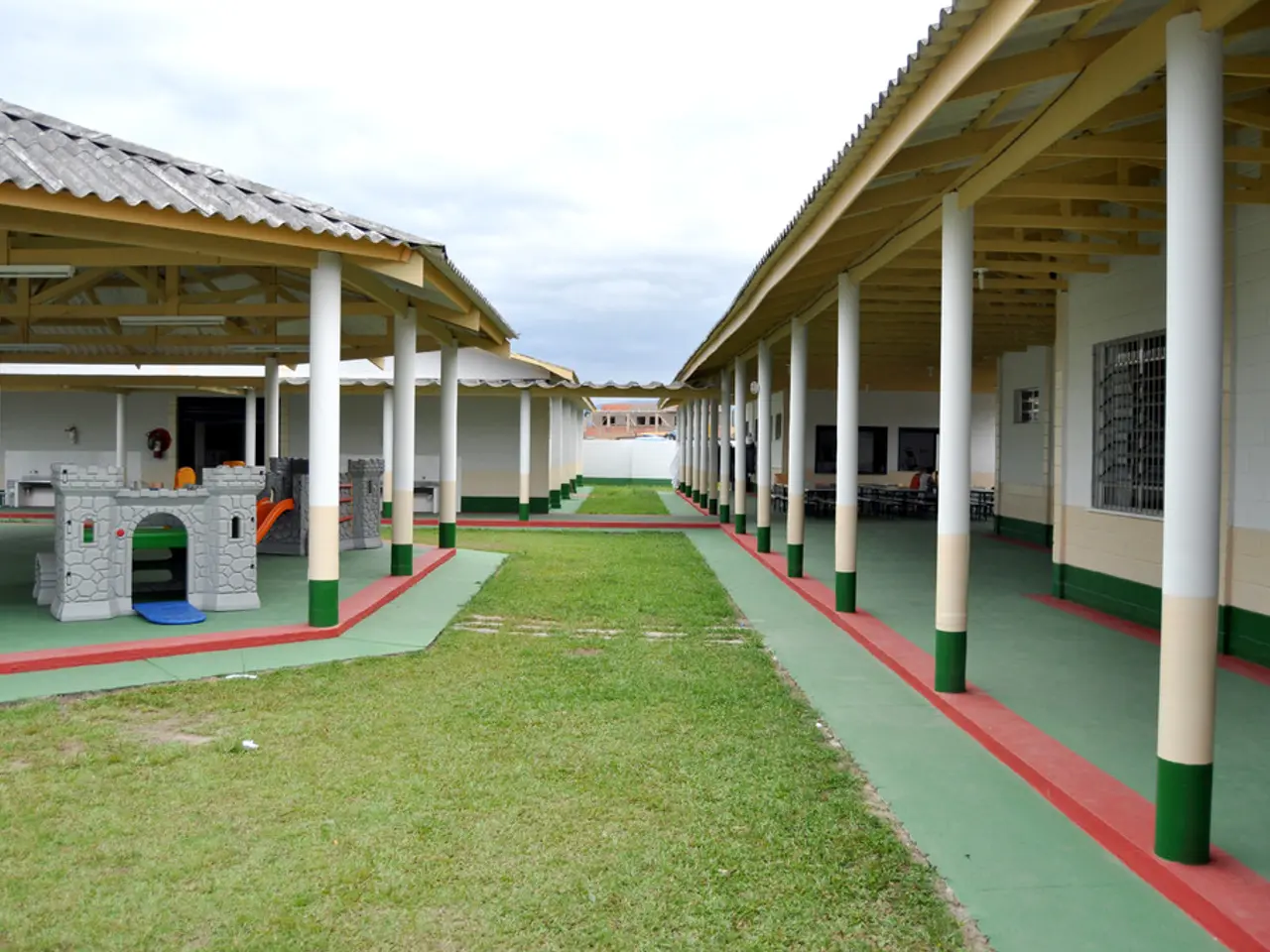"Victims of family sexual assault express disbelief and urge removal of time limits for reporting such incidents"
In a significant move, survivors of familial sexual abuse and activists recently gathered in central Seoul, demanding the complete abolition of the statute of limitations on familial sexual violence. The public rally, which took place on June 28, 2025, marked a significant step in the ongoing campaign that began six years ago with a national petition[1].
The demonstration, held in front of Kyobo Bookstore's Gwanghwamun branch in Jongno District, central Seoul, was not just a simple protest. It aimed to reconsider the statute of limitations on familial sexual violence, a topic that has gained increasing visibility in South Korea[1].
The event was sparked by a high-profile case involving a man who was sentenced to eight years in prison for repeatedly raping and stalking his daughter, who has intellectual disabilities. The man's trial and sentencing were significant events in the ongoing discussion and action against familial sexual violence in the country[1].
The current law, Article 20, Section 3 of the Act on the Protection of Children and Youth Against Sex Offenses, states that there is no statute of limitations for familial sexual violence crimes against children under 13 or people with disabilities. However, for victims aged 13 to 18, the statute of limitations is currently 10 years from when they reach adulthood[1].
Advocates and legal experts argue that minors aged 13 and older remain vulnerable and that crimes involving children and sexual abuse should be exempt from statutes of limitations altogether. Attorney Jang Yun-mi of the Korean Women Lawyers Association emphasized the need for special consideration for these crimes due to the profound impact on victims and the difficulty of disclosing abuse within families[1].
The demonstrators held placards during the protest, referencing the statue of Justitia, the goddess of justice, as a symbol of their fight for justice[2]. The event serves as a powerful reminder of the ongoing struggle for survivors of familial sexual abuse and the continued push for legal reform in South Korea.
References: [1] Park, M. (2025). Survivors of familial sexual abuse demand abolition of statute of limitations. The Korea Times. Retrieved from https://www.koreatimes.co.kr/www/news/nation/2025/06/178_300579.html [2] Kim, H. (2025). Demonstrators call for justice as they protest statute of limitations on familial sexual violence. The Hankyoreh. Retrieved from https://english.hankyoreh.com/news/1265049/demonstrators-call-for-justice-as-they-protest-statute-of-limitations-on-familial-sexual-violence
- The demonstrators, citing the importance of justice and health-and-wellness, especially in regards to sexual health, called for policy-and-legislation changes to abolish the statute of limitations on familial sexual violence in South Korea.
- The rally in central Seoul was a part of the long-standing general-news campaign that began six years ago, fueled by the growing visibility of the topic in society, particularly within the realm of science and politics.
- The event underscored the need for special consideration in policy-and-legislation regarding crimes involving sexual abuse, as advocates and legal experts argued that minors aged 13 and older should be exempt from statutes of limitations, given their continued vulnerability.
- As the struggle for survivors of familial sexual abuse continues, the demonstration serves as a testament to the power of activism and the demand for justice in crime-and-justice issues, echoing across the pages of books and the airwaves of news media, both domestically and internationally.




